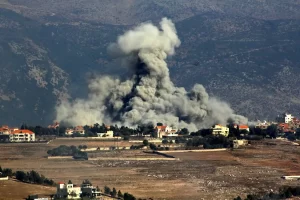PETALING JAYA: Asean countries must unite to ensure tensions between the US and China do not escalate, says an economist.
While he did not expect all 10 member nations to agree, Woo Wing Thye, who heads the Sustainable Development Solutions Network’s (SDSN) Asia headquarters at Sunway University, said the five fastest-moving Asean countries could band together.
“It’s just like the European Union (EU) has a two-track system, for those who want to go faster with integration and those that move slower,” he said when speaking as a panellist at the National Peace Conference organised by IMAN Research here.
Saying the Euro Zone comprised European countries that wanted to move the fastest, Woo added: “Similarly, within Asean, the countries that wish to move faster together would be Malaysia, Indonesia, the Philippines, Thailand and Vietnam.”
If these five countries were to reach a consensus, Woo said they would have enough “critical mass” to help set guide rails for US-China engagement.
Woo said the nature of the cold war between the US and China placed Asean nations in a precarious position, where they stood to benefit from moderate tensions but might suffer from high tensions.
“As long as tensions are low, that is good because we can sell to both sides; we are ignored but we get to do our own thing. With moderate tensions, they come and give us presents. But if there are high tensions, we get crushed.”
To illustrate the benefits of moderate US-China tensions, he pointed to Penang’s 2021 foreign direct investment (FDI) surpassing the sum of the nine preceding years.
“Why? Because American firms, instead of expanding to China, are expanding here.”
Woo added that Asean nations should also initiate projects that built trust between the US and China, such as implementing an industrial policy that separated economic, geo-strategic and technological competition.
“The US-China conflict is spiralling because of the interaction between these three types of competition.”
Currently, he said, if someone from either side were to commit an act of aggression on any of the three competition types, it would elicit a responsive act of aggression through any of the other two.
“So the first thing to do is to separate these three kinds of competition,” he said.
Source: freemalaysiatoday










